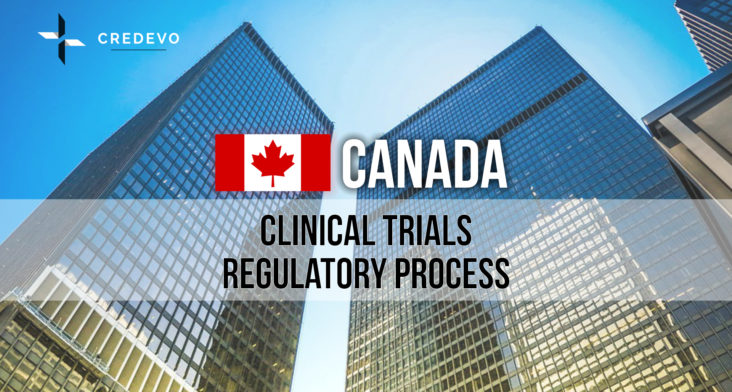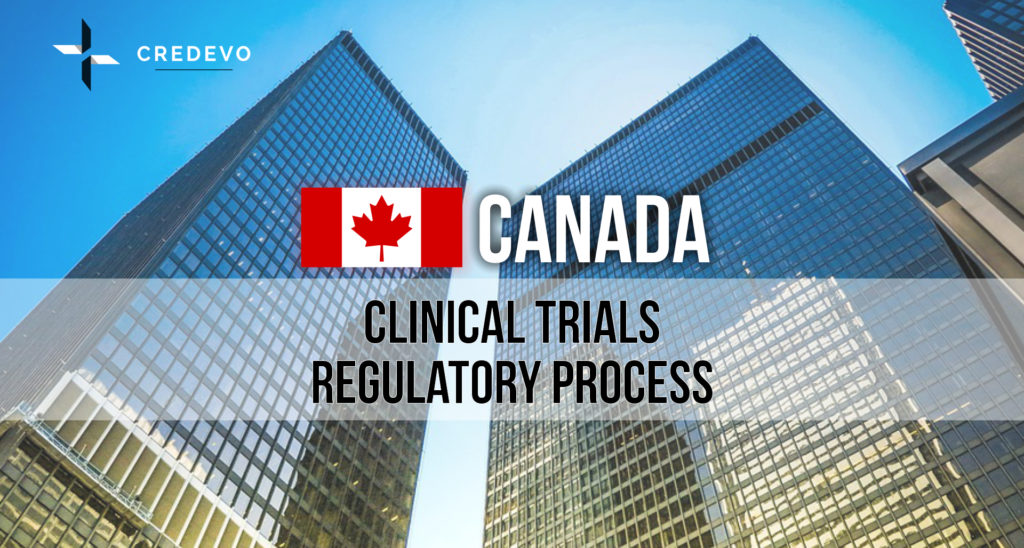Clinical Trial Approval Process In Canada

Health Canada (HC) reviews, evaluates, and approves applications for clinical trials using authorized therapeutic products in Canada.
HC assesses clinical trial protocols to evaluate participant protection and safety; reviews drug quality; assures institutional ethics committee review; verifies principal investigator qualifications; and monitors and reviews adverse drug reactions.

HC also approves the sale or importation of drugs for use in clinical trials in Canada.
HC’s scope of assessment includes clinical trials using:
- Drugs not authorized for sale in Canada in development and comparative bioavailability studies, and
- Marketed drugs where the proposed use of the drug for one of the following is different: indication(s) and clinical use; target patient populations(s); route(s) of administration; or dosage regimen(s).
Thus, conducting clinical trials in Canada may require sponsors (individual, corporate body, institution, or organization) to file a Clinical Trial Application (CTA) depending upon the types of clinical trials.
Do Your Clinical Trials Need Approvals in Canada?
| Types Of Clinical Trials | Need CTA? |
| Phases I – III clinical trials | Yes |
| Comparative bioavailability trials | Yes |
| Clinical trials involving marketed drugs, where the proposed trial is outside of the parameters of the authorized NOC or DIN application, e.g., one or more of the following is different – indication(s) and clinical use – target patient population(s) – route(s) of administration – dosage regimen(s) | Yes |
| Clinical trials in Canada with products that have received a Notice of Compliance with Conditions (NOC/c) | Yes |
| Phase IV clinical trials involving marketed drugs where the investigation is to be conducted within the parameters of the authorized NOC or DIN application |
Whom Should You Apply To?
As a sponsor undertaking the research, you should get approval from
- Health Canada (HC) and
- Research Ethics Board (REB).
before the initiation of a clinical trial.
The CTA should be sent directly to the appropriate Directorate:
- CTAs involving pharmaceutical drugs should be sent to the Therapeutic Products Directorate (TPD).
- CTAs involving biologics and/or radiopharmaceuticals should be sent to the Biologics and Genetic Therapies Directorate (BGTD).
- The sponsor of a natural health product applies through the Natural Health Products Directorate.
Quick points to consider before you apply
| Clinical trial application language | ENGLISH OR FRENCH |
| Parallel regulatory and ethical review permitted | YES |
| Clinical trial registration required | NO |
| In-country sponsor presence/representation required | YES |
| Age of minors | DETERMINED BY PROVINCE |
| Specimens export allowed | YES |
Pre-CTA Consultation Meeting
- You may request a pre-CTA consultation meeting with HC. The pre-CTA consultation meeting provides an opportunity for the sponsor to present relevant data, discuss concerns, and resolve issues regarding drug development.
- You may invite the investigator(s) who will be involved in the proposed trial(s) in Canada to attend the meeting.
Parallel Approval
- EC review for each clinical trial site may occur in parallel with HC’s CTA review and approval.
- Canada has a decentralized process for the ethical review of clinical trial applications and requires the sponsor to obtain institutional ethics committee (EC) approval for each participating trial site.
What Should Your Application Include?
- a protocol which details the objectives, benefits, risks, methods, and conditions for the trial to function
- Research Ethics Board Attestation
- Clinical Trial Site Information Form
- Clinical Trial Application (CTA)
- Qualified Investigator Undertaking
The module of application for CTA
The CTA is composed of three Modules:
- Module 1 – Contains administrative and clinical information about the proposed trial
- Module 2 – Contains Quality (Chemistry and Manufacturing) information about the drug product(s) to be used in the proposed trial
- Module 3 – Contains additional supporting Quality information
Each Module should be submitted in a separate binder.
Changes to a previously authorized CTA must be submitted to Health Canada either as a Clinical Trial Application – Amendment (CTA-A) or a Notification.
Qualified Investigator (QI)
There must be a Qualified Investigator (QI) for Phase I-III clinical trials involving a drug or natural health product.
The QI is responsible to the sponsor for the conduct of the clinical trial at the trial site and is entitled to provide health care under the laws of the province where the clinical trial site is located.
For a clinical trial involving a
- Drug: the QI is a physician and member in good standing of a professional medical association,
- Drug to be used for dental purposes only: the QI is a physician or dentist and a member in good standing of a professional medical or dental association
- Natural health product: At present, the same qualifications apply for the QI of a clinical trial involving a natural health product.
Do you need support for conducting clinical trials in Canada? Fill in the form below to connect with us discuss your requirements
REB Approval (Regional Ethics Board)
Clinical trials should obtain institutional ethics committee (EC) approval for each participating trial site. Once HC completes its review, the department issues a No Objection Letter (NOL) if the CTA is approved.
Institutionally based ethics committees (ECs) may independently decide whether to charge fees to conduct protocol reviews
Ethics Board – Documents Requirement
- Clinical protocol
- Informed consent forms (ICFs) and participant information
- Participant recruitment procedures
- IB
- Safety information
- Participant payments and compensation
- Investigator(s) current curriculum vitaes (CVs)
- Additional required institutional EC documentation
Time for approval
- Once a CTA has been submitted and reviewed, Health Canada notifies the Sponsor within 30 calendar days if the application is found to be acceptable or deficient.
- If the application is deemed acceptable, a No Objection Letter (NOL) is issued by Health Canada.
- The EC review and approval process timeline vary by institution.
- The application first undergoes a screening phase to ensure that all submission components have been provided.
- Once screened for acceptability, the application is processed for review, and an acknowledgment letter is issued to the sponsor to indicate the start of the review period.
Import
If a sponsor (Canadian or foreign) wants to import a drug into Canada to conduct a clinical trial, he/she must include a copy of HC’s clinical trial authorization (i.e., the No Objection Letter) with the drug shipment.
After Approval
- No waiting period is required following the applicant’s receipt of these approvals.
- While the Directorates can establish shorter administrative targets of seven (7) days for the review of bioequivalence trials, the 30-day default system remains the regulatory requirement.
- Applications to conduct Phase I clinical trials using somatic cell therapies, xenografts, gene therapies, prophylactic vaccines, or reproductive and genetic technologies are not included in the seven-day target system.
Soon after HC issues an NOL, it will publish the following information about the clinical trial in HC’s publicly accessible database:
- Protocol number
- Protocol title
- Drug name
- Medical condition
- Study population
- Authorization date
- Sponsor name
- HC control number
- Trial start and end dates, if known.
Before initiation
Before initiating the trial, the sponsor must sign an agreement between all involved parties, including
- ECs,
- Qualified Investigators (QIs),
- contract research organizations, and
- others,
to ensure full compliance with the regulatory requirements.
Insurance
The Canada Food and Drugs FDR does not require the sponsor to provide insurance coverage to investigators, institutions, or trial participants. However, G-CanadaRecords and the Guidance for Industry: ICH Guidance E6 – Good Clinical Practice: Consolidated Guideline (CA-ICH-GCPs) guide sponsors on providing insurance.
Fee
- There are no fees to submit a clinical trial application in Canada.
- Institutionally based ethics committees (ECs) may independently decide whether to charge fees to conduct protocol reviews. For example, an institutional EC may require industry sponsors or other for-profit organizations to pay a fee.
Medical devices
- The regulations governing medical devices are within the Canadian Food and Drugs Act.
- Medical devices are classified into one of Classes I to IV.
- The classification is based on the level of invasiveness and whether the device is active (i.e., depends on a source of energy for operation, a source other than the energy generated by the human body or gravity).
- Class I represents the lowest risk medical devices while Class IV represents the highest risk.
- If a medical device can be classified into more than one class, the class representing the highest risk applies.
Investigational testing authorization (ITA)
- Human experimentation and development of medical devices are not always established by phased development as with drugs (i.e., Phase I – IV clinical trials).
- Proposed medical device research with humans is evaluated through the Device Evaluation Division of the Medical Devices Bureau of Health Canada.
- An application is submitted and evaluated according to the Investigational Testing Authorization program governing the use of Class II, III, and IV medical devices. Class, I medical devices do not require investigational testing authorization.
- If the investigational testing of a device is in conjunction with a drug in a clinical trial then the sponsor must obtain authorization for the clinical trial and authorization for the use of the investigational medical device.
- Following a favorable Health Canada review of the Application for Investigational Testing, a “No Objection Letter” (NOL) is sent to the Manufacturer/Sponsor indicating Health Canada’s agreement for the Manufacturer/Sponsor to conduct the research.
Need Support for your clinical trials in Canada?
Feel free to contact us with your questions or if you need any support in Canada.
Credevo has conducted several feasibility studies in Canada, follow the links to know more
- Conducting a Colorectal cancer clinical trial? Here is why you should engage investigators in Canada
- Alopecia – A Clinical Trial Feasibility in Canada
- Amyotrophic Lateral Sclerosis – Potentially High Clinical Trial Recruitment With Investigators In Canada
References
- https://clinregs.niaid.nih.gov/single_country.php?c_id=38#ethics_committee_fees
- https://www.canada.ca/en/health-canada/services/drugs-health-products/drug-products/applications-submissions/guidance-documents/clinical-trials/overview.html
- https://uwaterloo.ca/research/office-research-ethics/research-human-participants/application-process/clinical-trials-or-studies-involving-drug-medical-device-or
- https://researchethicssimplified.com/whats-the-difference-between-canada-and-us-cta-versus-ind-2/
- Guidance for Clinical Trial Sponsors
2 thoughts on “Clinical Trial Approval Process In Canada”
Comments are closed.